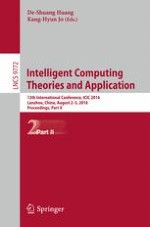2016 | OriginalPaper | Buchkapitel
A Simple Review of Sparse Principal Components Analysis
verfasst von : Chun-Mei Feng, Ying-Lian Gao, Jin-Xing Liu, Chun-Hou Zheng, Sheng-Jun Li, Dong Wang
Erschienen in: Intelligent Computing Theories and Application
Aktivieren Sie unsere intelligente Suche, um passende Fachinhalte oder Patente zu finden.
Wählen Sie Textabschnitte aus um mit Künstlicher Intelligenz passenden Patente zu finden. powered by
Markieren Sie Textabschnitte, um KI-gestützt weitere passende Inhalte zu finden. powered by
